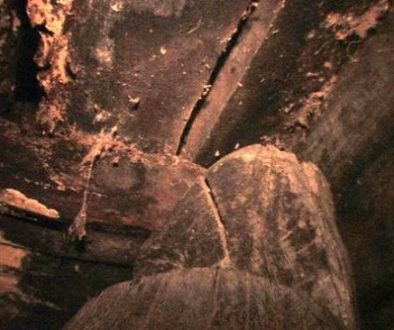Leading Israeli Scientist Declares Pomegranate Inscription Authentic
 An Israeli scientist employed by the defense in the Jerusalem forgery trial has concluded that the inscription on the famous ivory pomegranate (“[Belonging] to the Temple of [Yahwe]h, consecrated to the priests”) is authentic.
An Israeli scientist employed by the defense in the Jerusalem forgery trial has concluded that the inscription on the famous ivory pomegranate (“[Belonging] to the Temple of [Yahwe]h, consecrated to the priests”) is authentic.
If the inscription is authentic, the pomegranate is probably the only surviving artifact from Solomon’s Temple.
Professor Yitzhak Roman of the Hebrew University examined the pomegranate under a Scanning Electron Microscope (SEM) to reach his conclusions. In the 1990s he was the academic director of Hebrew University’s SEM.
A committee led by Tel Aviv University’s Yuval Goren had previously concluded that the inscription was a forgery because three critical letters adjacent to an ancient break stopped before the break. The forger was apparently fearful of breaking off more of the pomegranate if he went too close to this fracture. The pomegranate itself is admittedly genuine. However, Professor Roman’s examination showed that the three critical letters, contrary to Yuval Goren’s finding, did in fact go into the ancient break.
This was the same conclusion reached by an examination of the pomegranate at the Israel Museum sponsored by the Biblical Archaeology Society on May 3, 2007: The three letters clearly go into the break.
In addition, Professor Roman examined the patina inside the letters of the inscription. The committee that found the inscription to be a forgery had concluded that this patina was somehow glued into the surviving letters of the inscription. Professor Roman found 11 different elements (some just trace amounts) in the natural patina. But he found no evidence that the patina had been glued.
Whether anyone will ask Professor Goren for his reaction to Professor Roman’s devastating report is not yet known.







September 3, 2014 @ 2:40 am
Is this the pomergranate Ron took out from the cave where he discovered the ark of the covenant in 1981?
September 3, 2014 @ 7:22 am
Yes, it’s the same ivory pomegranate.